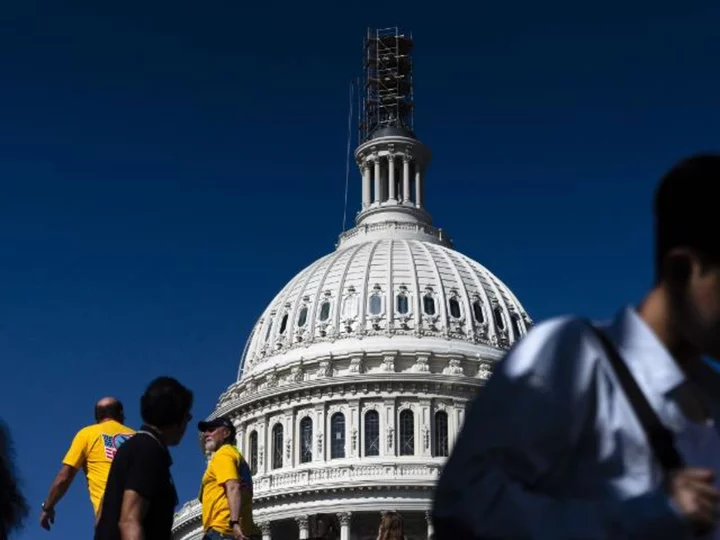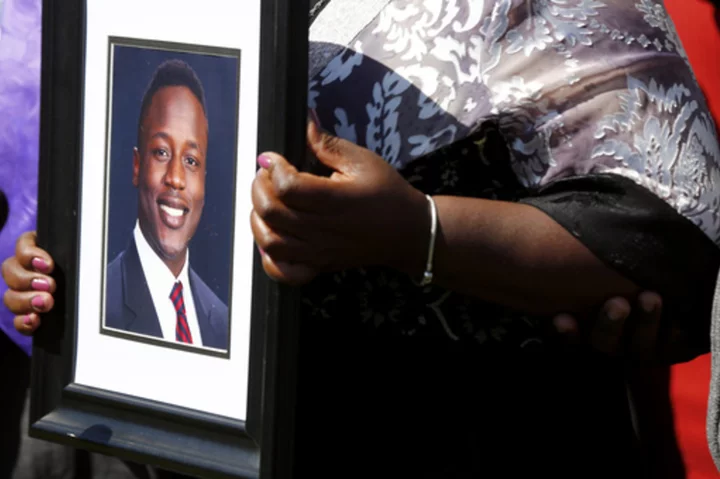The House speakership drama enters a new week under increased urgency as Israel declared war Sunday following unprecedented surprise attacks by Hamas.
Kevin McCarthy's unprecedented ouster as speaker leaves the House iin uncharted legal territory regarding what it can do under acting Speaker Patrick McHenry. When Congress reconvenes Monday, lawmakers will be under pressure to elect a new speaker swiftly amid the crisis in Israel, which has prompted calls from within the Republican Party to speed up their timeline given the national security implications of keeping the role vacant.
As the Biden administration looks to provide additional assistance to Israel, officials were unsure Saturday about what could be accomplished without a sitting speaker. While McHenry is serving as speaker pro tempore, he has little power outside of recessing, adjourning or recognizing speaker nominations, and it's unclear whether he can participate in intelligence briefings on the crisis in Israel.
Democratic House Minority Leader Hakeem Jeffries said Sunday that he had conversations with the White House and the National Security Council on Saturday, but he has not yet met with the Gang of Eight -- which typically includes the top leaders and heads of the intelligence committees in both parties and both chambers.
"I do anticipate that we'll have the opportunity to have a secure briefing at some point next week," Jeffries told CNN's Dana Bash on "State of the Union."
Jeffries said it is his understanding that the Biden administration can make some decisions regarding aid to Israel without waiting for Congress and urged the administration to do so, adding that he expects "it will provide whatever assistance it can."
House Foreign Affairs Chairman Mike McCaul told Bash Sunday that there is currently $3.3 billion in foreign military financing already appropriated that the president can use.
The Texas Republican also called McCarthy's ouster "dangerous."
"I look at the world and all of the threats that are out there and what kind of message are we sending to adversaries when we can't govern, when we are dysfunctional, when we don't even have a speaker of the House?" McCaul said on "State of the Union."
McCarthy on Saturday slammed his Republican colleagues for removing him from office last week, and stressed the impact of a speakerless House on national security. "Why would you ever remove a speaker during a term to raise doubt around the world?" McCarthy asked in a Fox News interview.
McCarthy announced shortly after his ouster that he would not seek the speakership again, making room for House Majority Leader Steve Scalise of Louisiana and Ohio Rep. Jim Jordan to launch their bids for the seat. Former President Donald Trump has thrown his support behind Jordan. Oklahoma Rep. Kevin Hern announced Saturday that he had decided not to run, saying "I believe a three-man race for Speaker will create even more division and make it harder to elect a Speaker."
House Republicans are scheduled to hold a candidate forum on Tuesday and an internal election on Wednesday. But it's unclear when the floor vote will happen, and the timeline is contingent on whether moderate GOP lawmakers can rally around Scalise or Jordan, who are among the hardliners of the party.
"We have to get a speaker elected this week so we can get things on the floor like replenishing the Iron Dome," McCaul told Bash on Sunday -- referring to Israel's rocket defense system, which was developed with help from the United States. He added that the House should look to pass a resolution condemning Hamas "by unanimous consent whether or not we have a speaker in place because I think we cannot wait. We have to get that message out as soon as possible."









